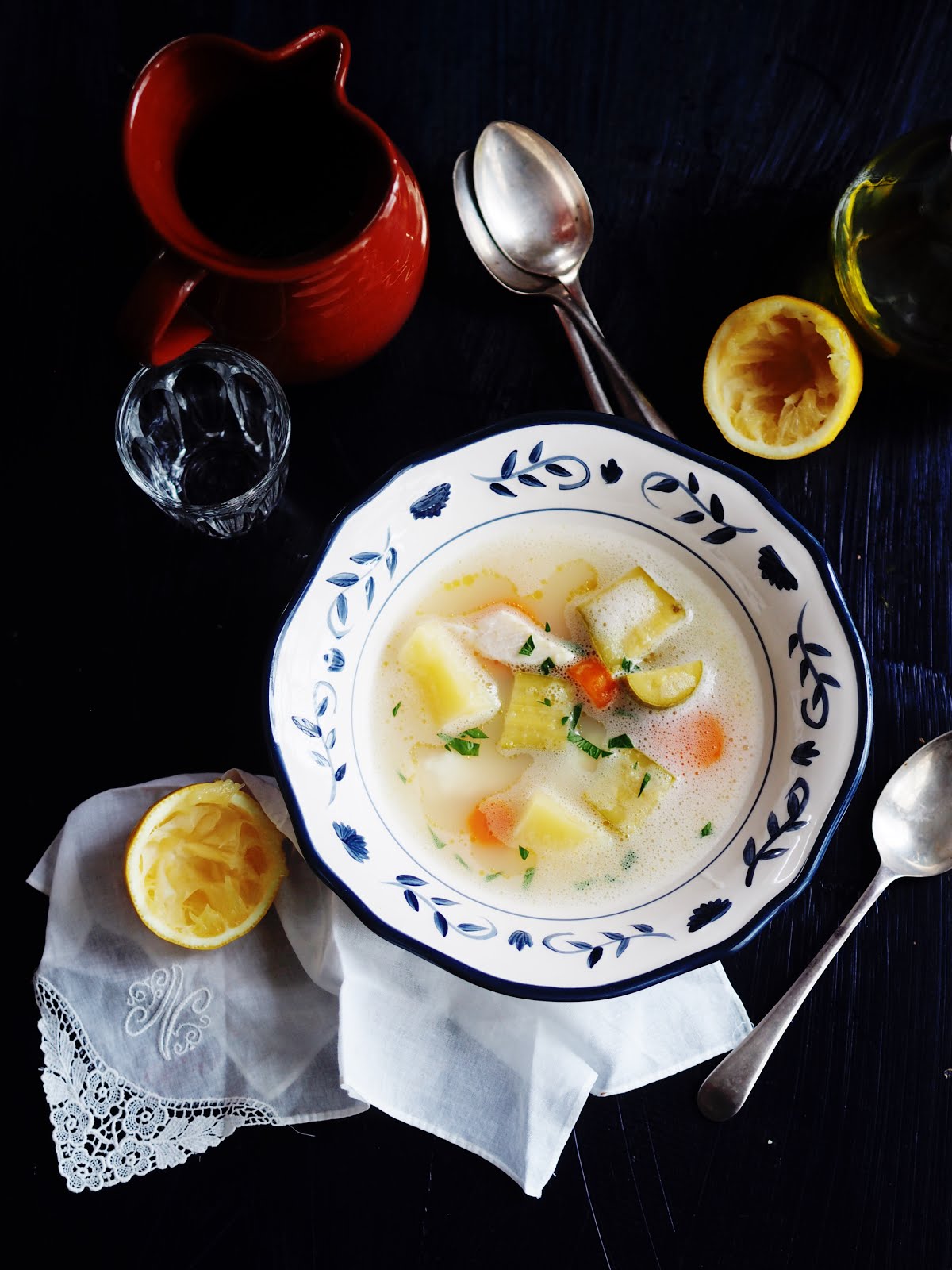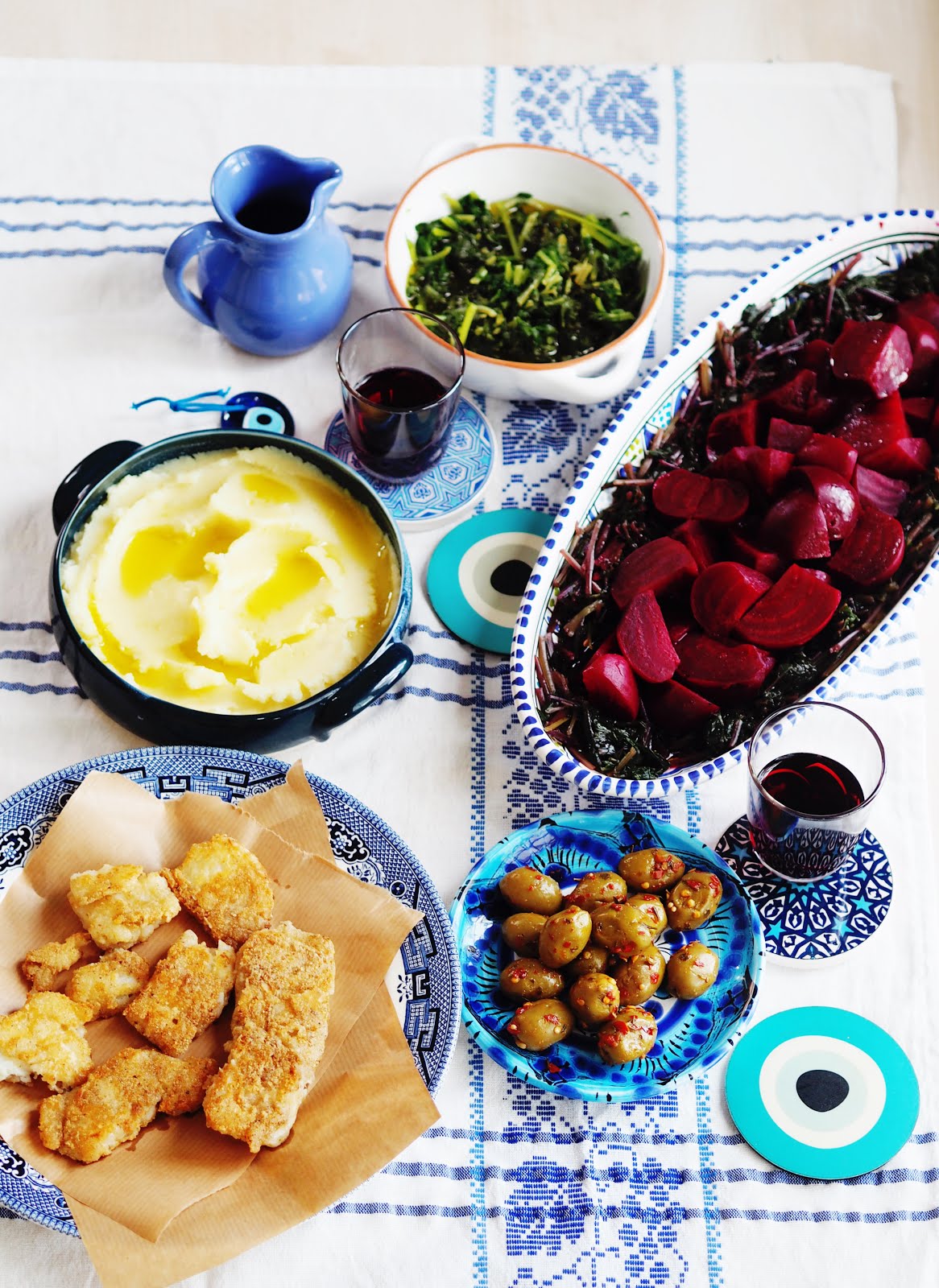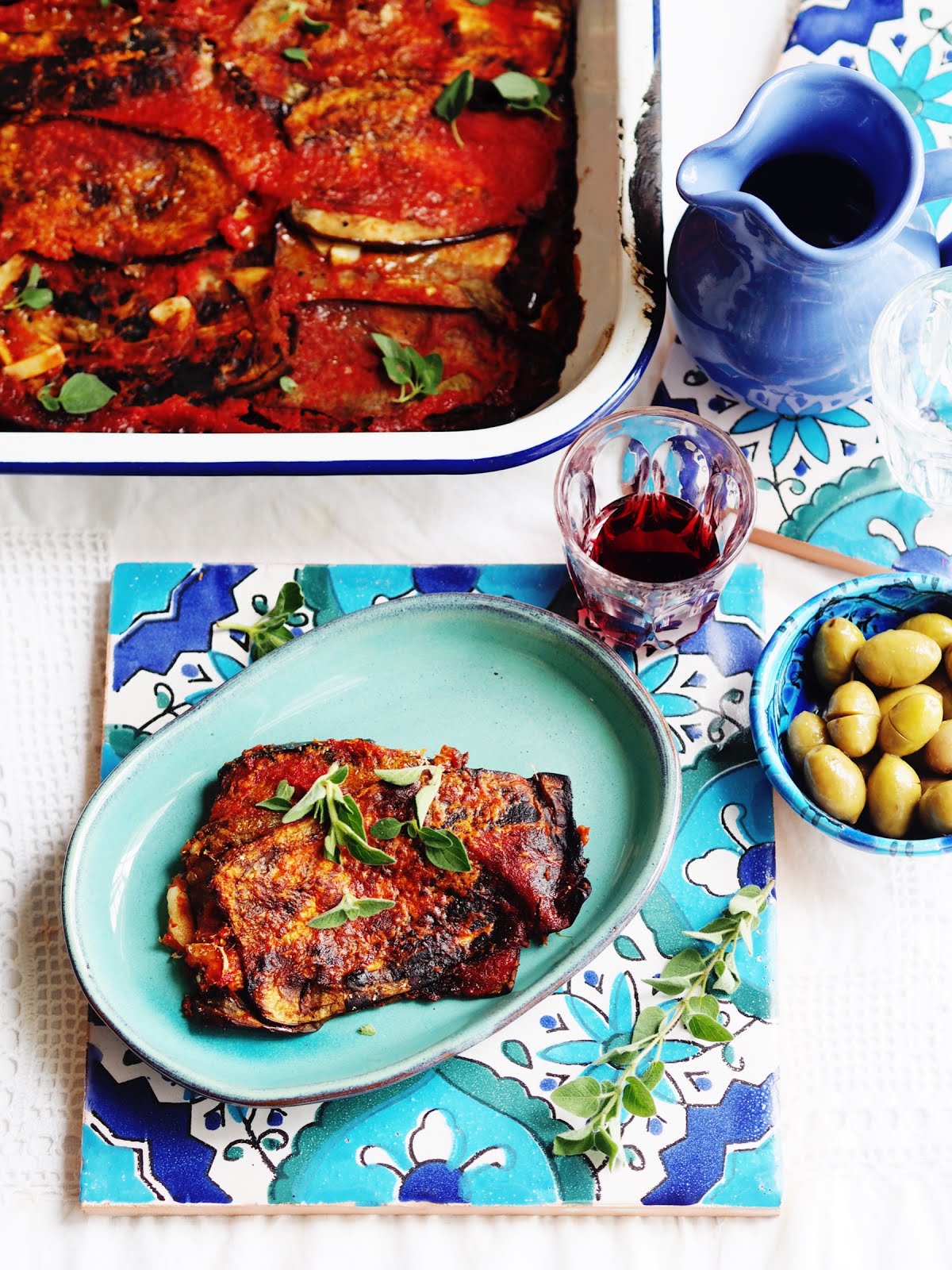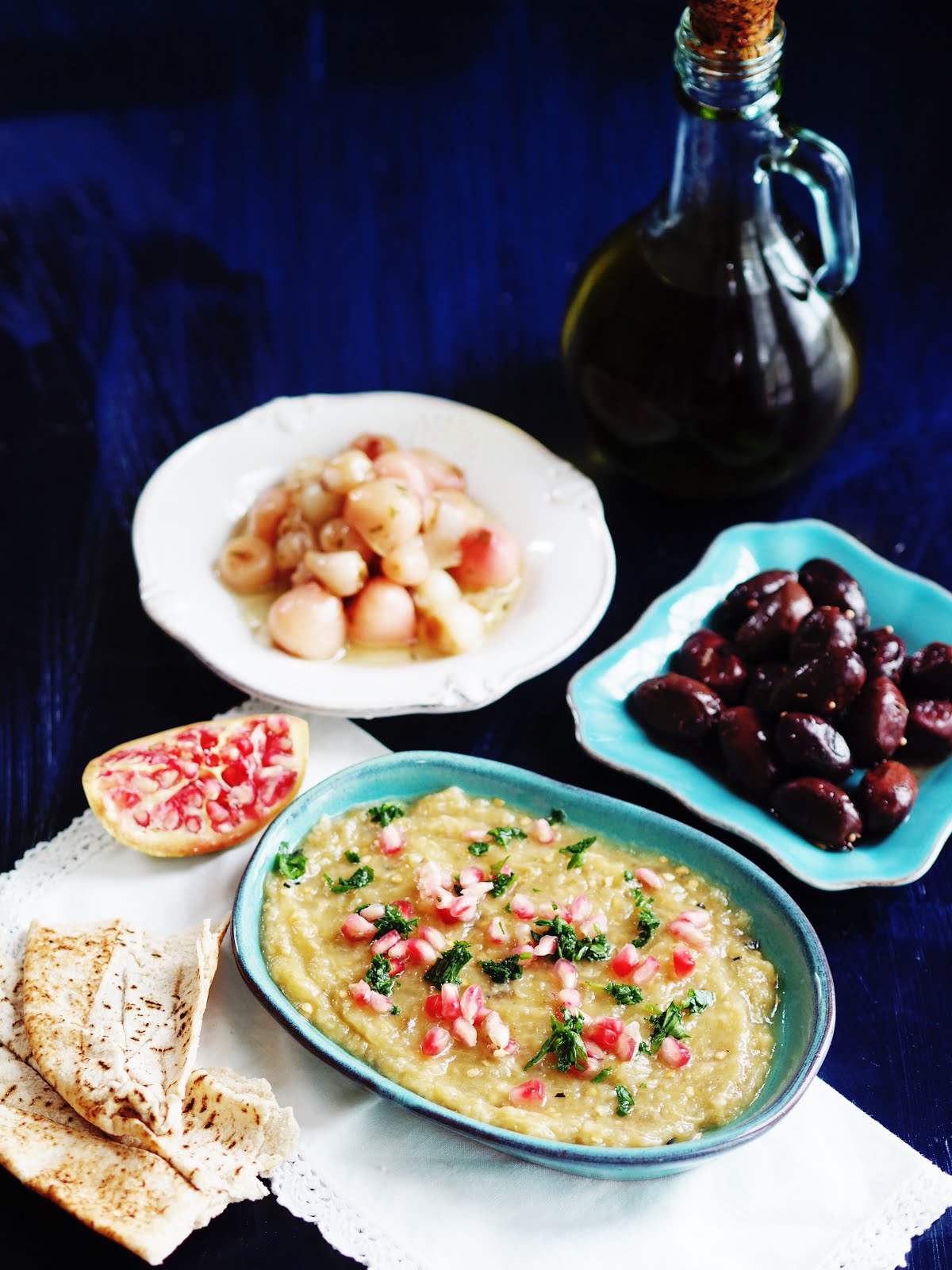Mum's fish soup with avgolemono (Ψαροσουπα αβγολεμονο | ΣΥΝΤΑΓΕΣ ΜΑΜΑΣ)

One of the most loved home style Greek recipes, psarosoupa (fish soup) is a perfect dish for those cooler autumn nights that are coming our way here in Australia. Mum's recipe starts with a simple vegetable stock, which uses plenty of celery leaves in lieu of the Greek grown herb 'selino'. If Ma were in Greece she would use selino, the wild celery, that is both a herb and a vegetable. It has much thinner stalks than our ordinary celery and more leaves. Hence, Ma's use of plenty of celery leaves in this dish. Once the vegetable stock is created, the fish is then cooked in the stock. Ma's fish of choice here in Australia is snapper, but you could use any fish with firm white fillets. The odd red mullet (called barbounia) can also be added. Before the fish is cooked however, Ma's secret for perfect fish soup is to scrupulously clean the fish. They should be cleaned to the point where, when they are placed under a running tap, the water runs clear and is not cloud...




